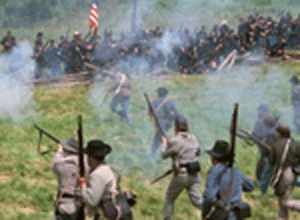
“A great story requires conflict,” the Sunday school teacher said at the end of class. “Think about that this week. Come back next Sunday and tell me why.”
Janelle reviewed many Bible stories, including Noah, Abraham, and Moses. Isaac wasn’t that interesting—not much conflict there. She imagined what it would have been like for David to fight the lion and the bear, Goliath, and then Saul. The teacher was right. A great story did require conflict, but why?
No high school senior could get away with the obvious, saying, “It’s because stories without conflict are boring.” When conflict put the outcome in doubt, she became interested. Maybe that was it. Her own personal conflicts made it easy to relate to what was happening in the stories. Was that the right answer?
The next Sunday, Janelle eagerly listened to everybody’s ideas. She walked with the teacher through several stories, looking for what mattered most—characters they could easily identify with, who were in situations where they had to act, where the battle experience taught them something important.
- Eve made a decision she thought was right, but it turned out to be wrong.
- Abraham was asked to sacrifice his greatest treasure, his promised son.
- Jacob had to run because he lied to his father.
- Naomi’s husbands and sons had been killed, making her bitter.
- Gideon was hiding from his enemies.
- Samson’s love for women kept getting him into trouble.
- Joseph was hated by his brothers for telling the truth. He was tried and convicted for a crime he hadn’t committed.
- King Darius had to sentence Daniel, a valuable leader in his country, to death in the lion’s den.
The greatness of a story depends on caring about the situation and what the character wants, so we become emotionally involved in the conflict.



